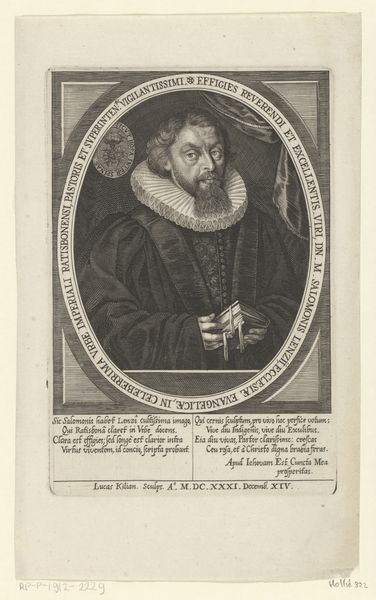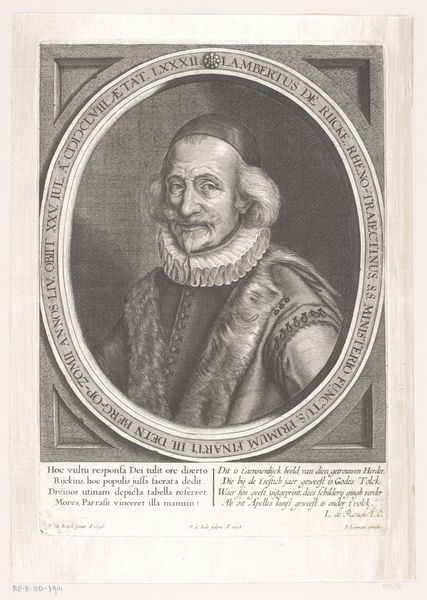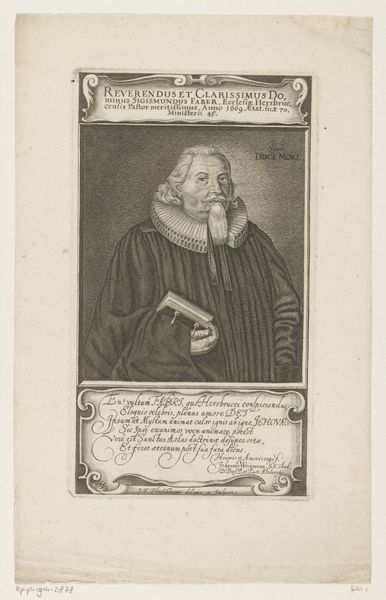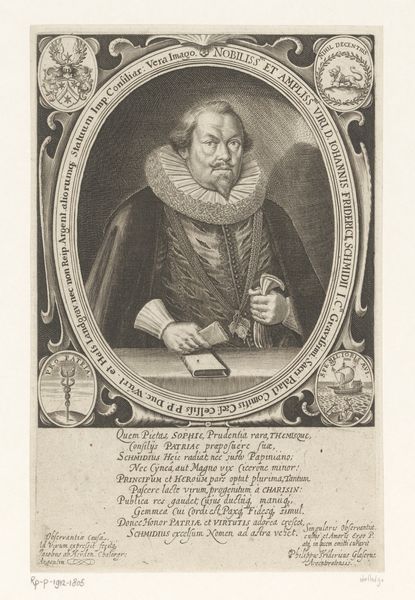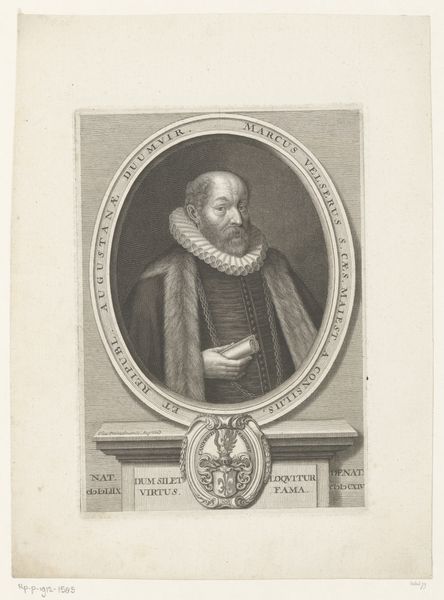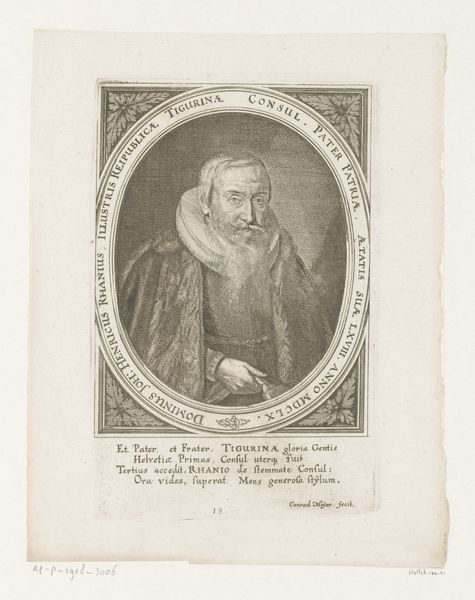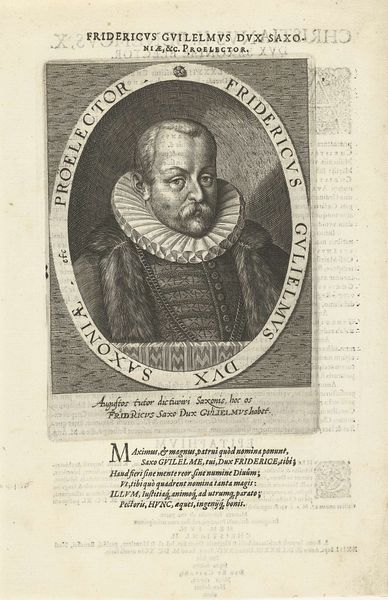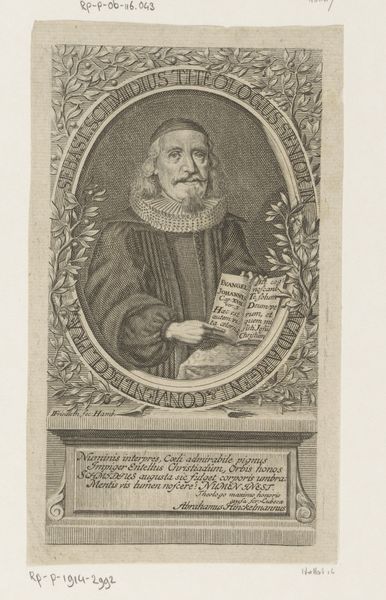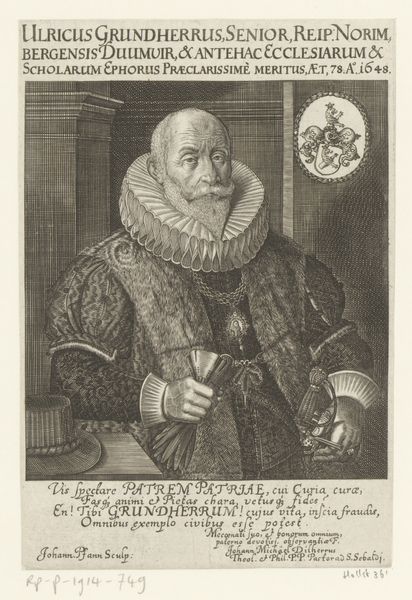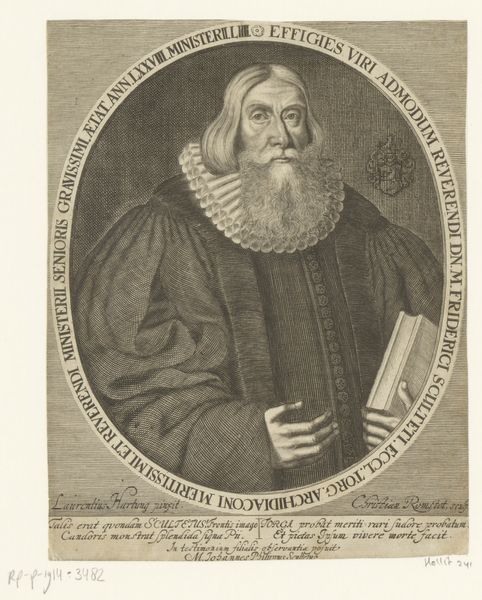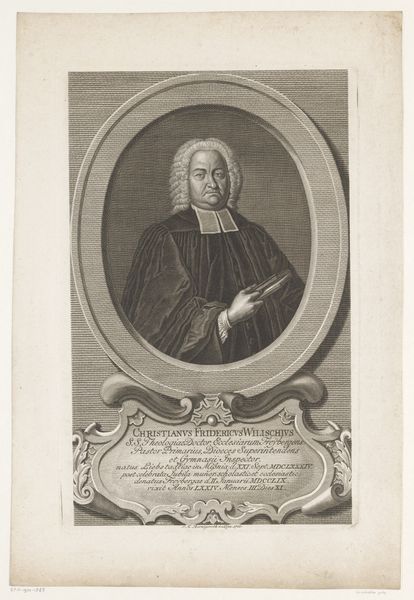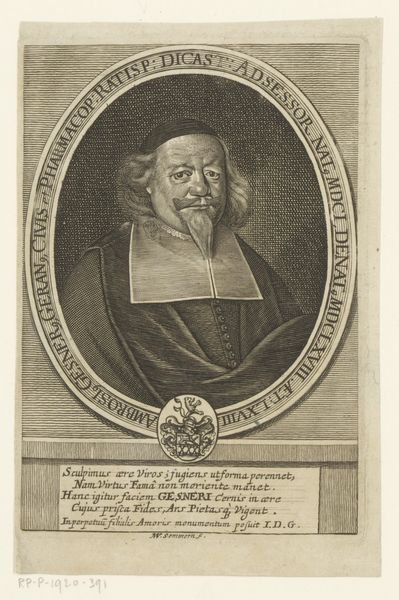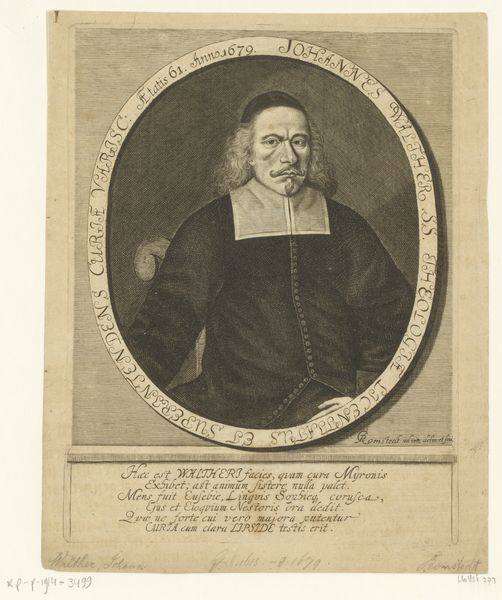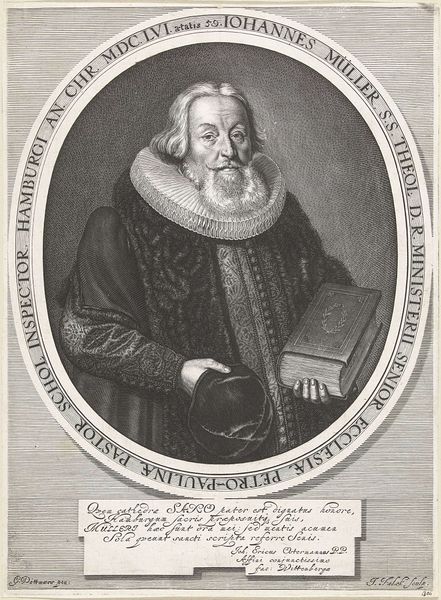
print, engraving
#
portrait
#
baroque
# print
#
old engraving style
#
history-painting
#
engraving
Dimensions: height 204 mm, width 124 mm
Copyright: Rijks Museum: Open Domain
Andreas Kohl created this portrait of Benedict Mauricius around 1655 using engraving. This meticulous, linear method involved cutting lines into a metal plate, inking it, and pressing it onto paper. The engraver's skill is evident in the precise lines that define Mauricius's features, his elaborate ruff, and the details of the book he holds. Look closely, and you can see how the varying thickness and density of lines create a sense of depth and texture. Engraving was a labor-intensive process, demanding specialized tools, training, and an intimate knowledge of materials. Unlike painting or sculpture, printmaking allowed for the reproduction and dissemination of images, playing a crucial role in shaping public opinion and religious belief during the early modern period. Here, the choice of engraving as a medium underscores the value placed on precision, knowledge, and the power of the printed word. By understanding the materials and processes behind this portrait, we gain insight into the cultural and intellectual landscape of its time, challenging distinctions between fine art and craft.
Comments
No comments
Be the first to comment and join the conversation on the ultimate creative platform.
